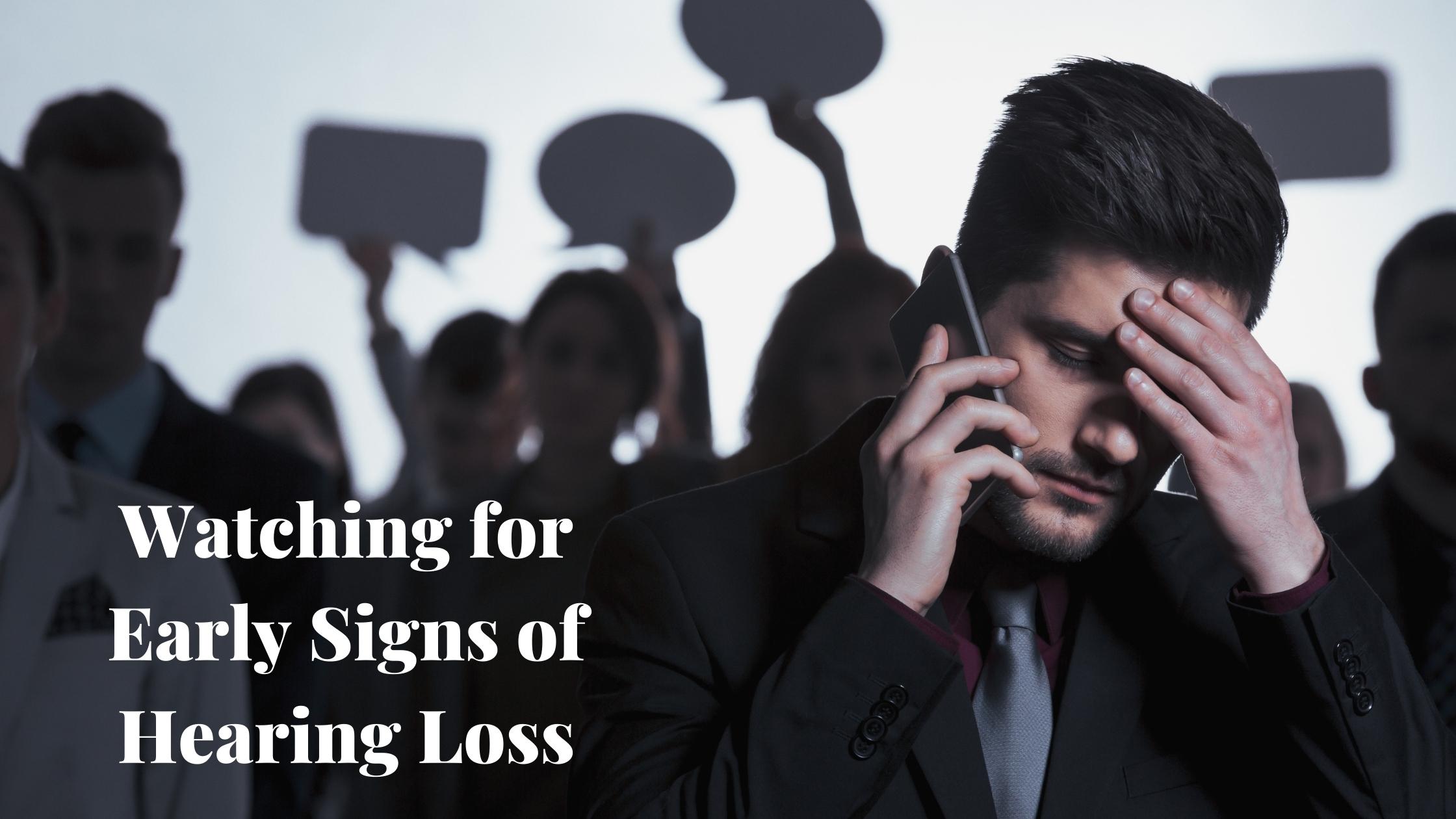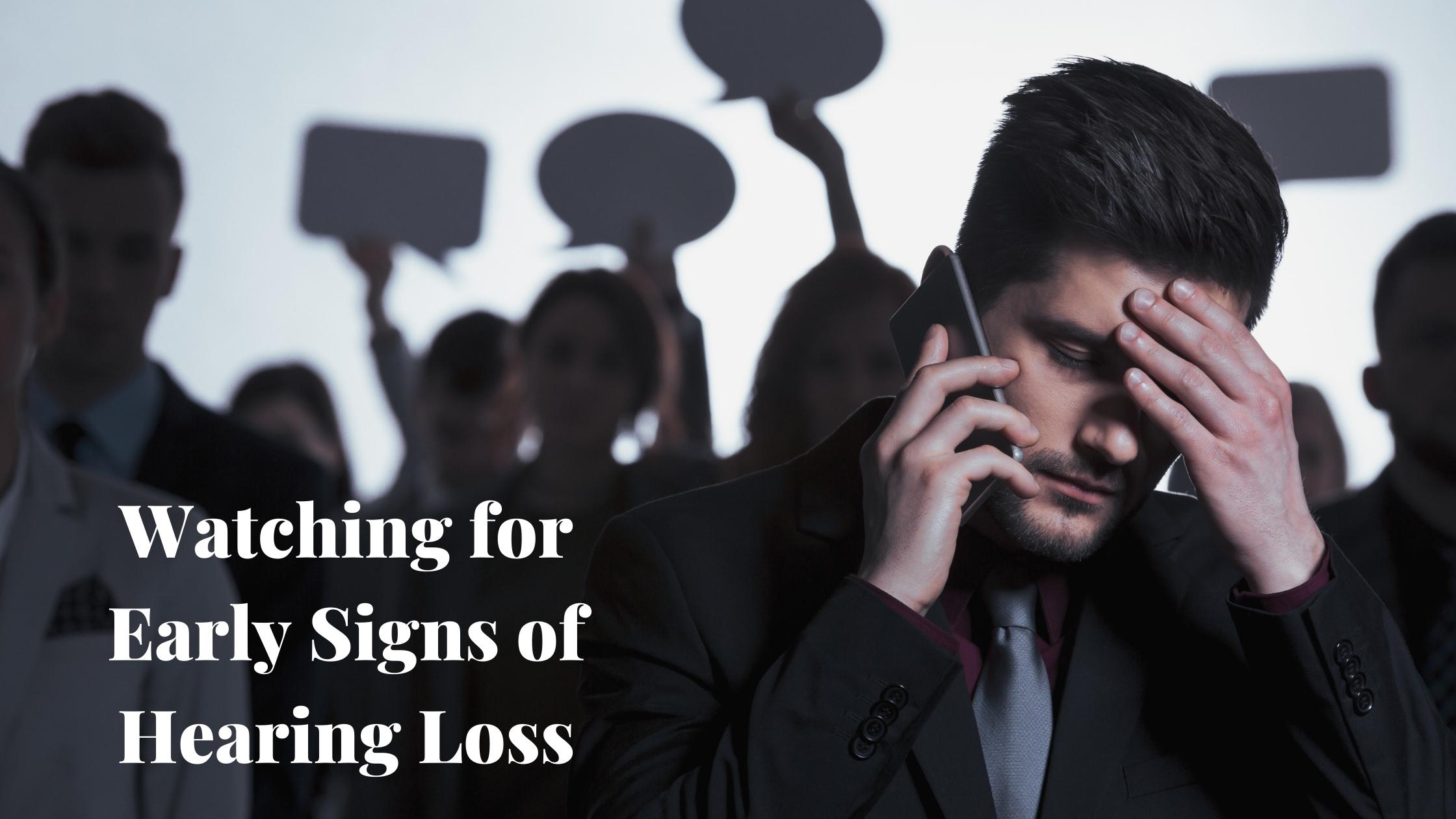All About Bluetooth Hearing Aids
Do you remember the hearing aids your parents or grandparents used to

By: admin | March 22, 2022

An estimated 357 million people worldwide today have hearing loss—a number expected to rise as the global population grows and ages. By 2050, more than one in four Americans will be 65 or older. Yet, more than 90 percent of hearing loss is preventable or reversible. The earlier you detect hearing loss, the sooner you can get help.
Health conditions often manifest gradually, and a person may not even be aware of them until they have already caused significant damage to the body. This can also happen with hearing loss. Here are some common early signs of hearing loss to look out for, so you can act right away.
Have you ever returned home from a show feeling spent? What’s going on? This fatigue could be a symptom of impending hearing loss.
Mild hearing loss makes it difficult to follow discussions, especially at noisy events or in environments with a lot of background noise. You’ll use a lot more energy straining to hear, assuming what was said, or filling in the holes using context or facial expressions.
You fall into bed exhausted at the end of the night, and you may feel even more fatigued in the morning than usual. It’s possible that you’ll become exhausted as a result of this. It could be an early symptom of hearing loss. Observe whether you have a more challenging time following conversations than your friends the next time you’re out. Even if you aren’t aware of it, hearing loss could be the source of your exhaustion.
Has it been more difficult than usual to keep up with conversations? Is it more difficult if you’re in an environment with a lot of background noise? Hearing loss might be on the cards if you have trouble understanding speech. You’ll have no issue hearing someone speak, but you could have trouble catching enough understanding of what they’re saying. Both high and low sounds are used in speech.
Consonant noises, for example, are often high-pitched. This is usually one of the first sounds you’ll notice you’re missing. This means that even if you think you’ve heard everything, you’re missing out on some information. You’ll have trouble following discussions. You’ll have to ask individuals to repeat themselves because you don’t understand what they say.
Turning up the volume on the television is another early symptom of hearing loss. You can be doing it unconsciously and not even realize it because you’re increasing the level to compensate for hearing loss. After all, the volume of different applications varies, and you alter it frequently.
Suppose your family begins to complain that the TV is always too loud, and you have it set louder on average than you used to. In that case, you are most likely suffering from hearing loss.
Do you have the feeling that everyone around you has lost how to communicate clearly? Is it possible that discussions are muffled or difficult to hear? If your talks are muted, and this is the case in most of your conversations, you may be experiencing the early stages of hearing loss. While you may believe the issue is that others have started muttering constantly, the underlying issue is most likely in your ears.
Consider the sounds you hear regularly. Birds chirping outside the window, a sharp exhale of breath from your loved one in the next room, or even the ticking of your car’s turn lights could be the source of this noise. Have you been missing out on these commonplace sounds? You might not realize it at first since you’ve grown accustomed to not hearing these sounds. However, if you no longer hear these everyday noises, hearing loss is an early symptom.
If you’ve noticed any of these early indications of hearing loss or any other changes in your hearing health, contact us! Come in for a full hearing test to learn more about your hearing loss. Hearing aids should be used even if the hearing loss is mild. You won’t be as exhausted after conversations, and you won’t have trouble understanding what’s being said. Hearing aids will also allow you to hear all of the sounds you’ve been missing and will provide you with clearer hearing.

Do you remember the hearing aids your parents or grandparents used to
By: admin | August 7, 2022

Do you ever find yourself at the end of a long day only to be confronted
By: admin | August 7, 2022

How Common is Hearing Loss Many people might be shocked to learn how
By: admin | June 22, 2022
